Get a free trial until June 30, 2026!
New members get access to our science units, hands-on activities, mini-lessons, & more!

Please wait…
This video is having trouble loading. You may have lost your Internet connection.
Step 1: Click to Reload this page
Step 2: Click to
Try our other video player
Step 3: Contact your teacher if trouble persists.
Or,
dismiss this message.


Please wait…
This video is having trouble loading. You may have lost your Internet connection.
Step 1: Click to Reload this page
Step 2: Click to
Try our other video player
Step 3: Contact your teacher if trouble persists.
Or,
dismiss this message.
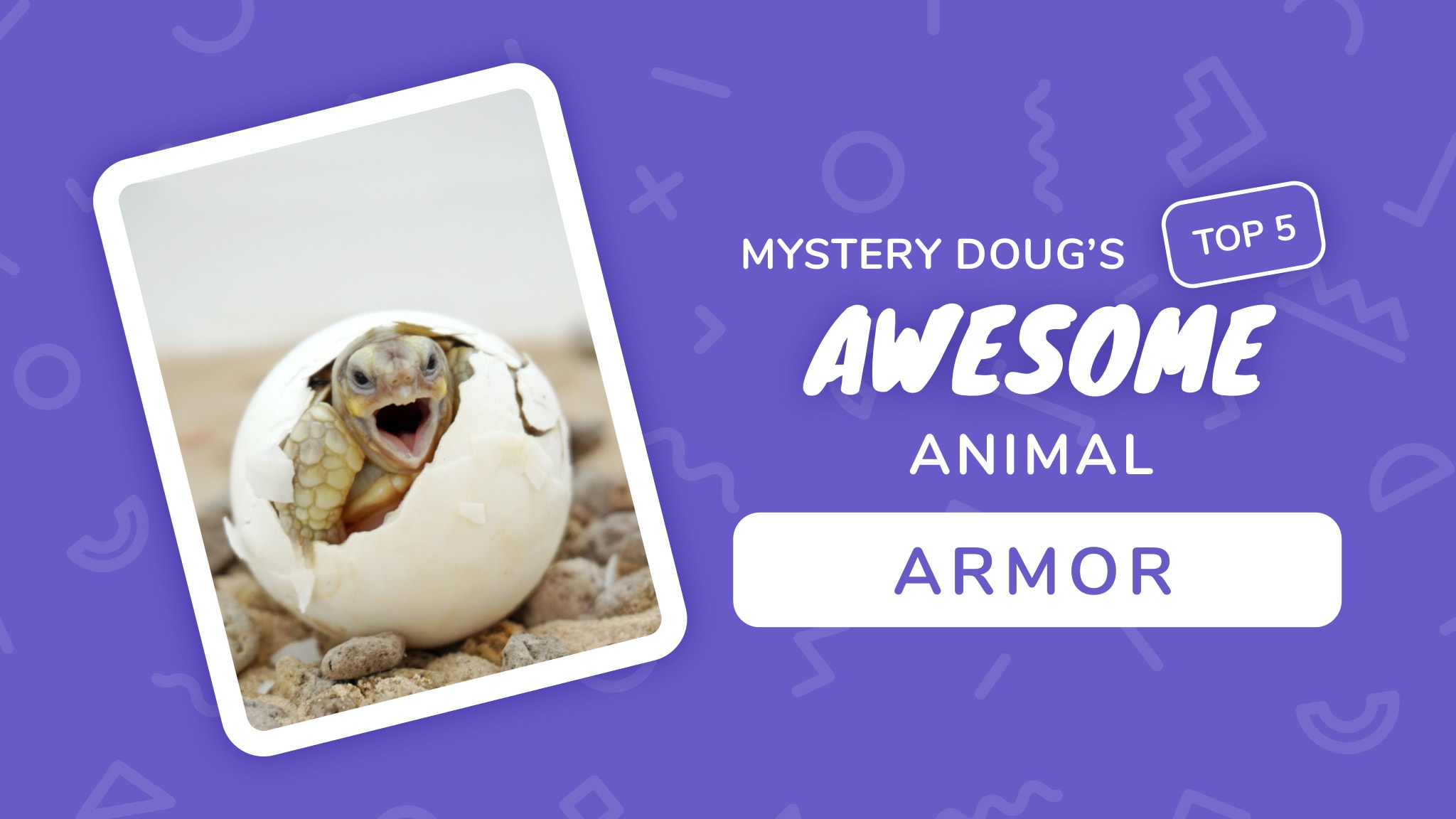

Please wait…
This video is having trouble loading. You may have lost your Internet connection.
Step 1: Click to Reload this page
Step 2: Click to
Try our other video player
Step 3: Contact your teacher if trouble persists.
Or,
dismiss this message.
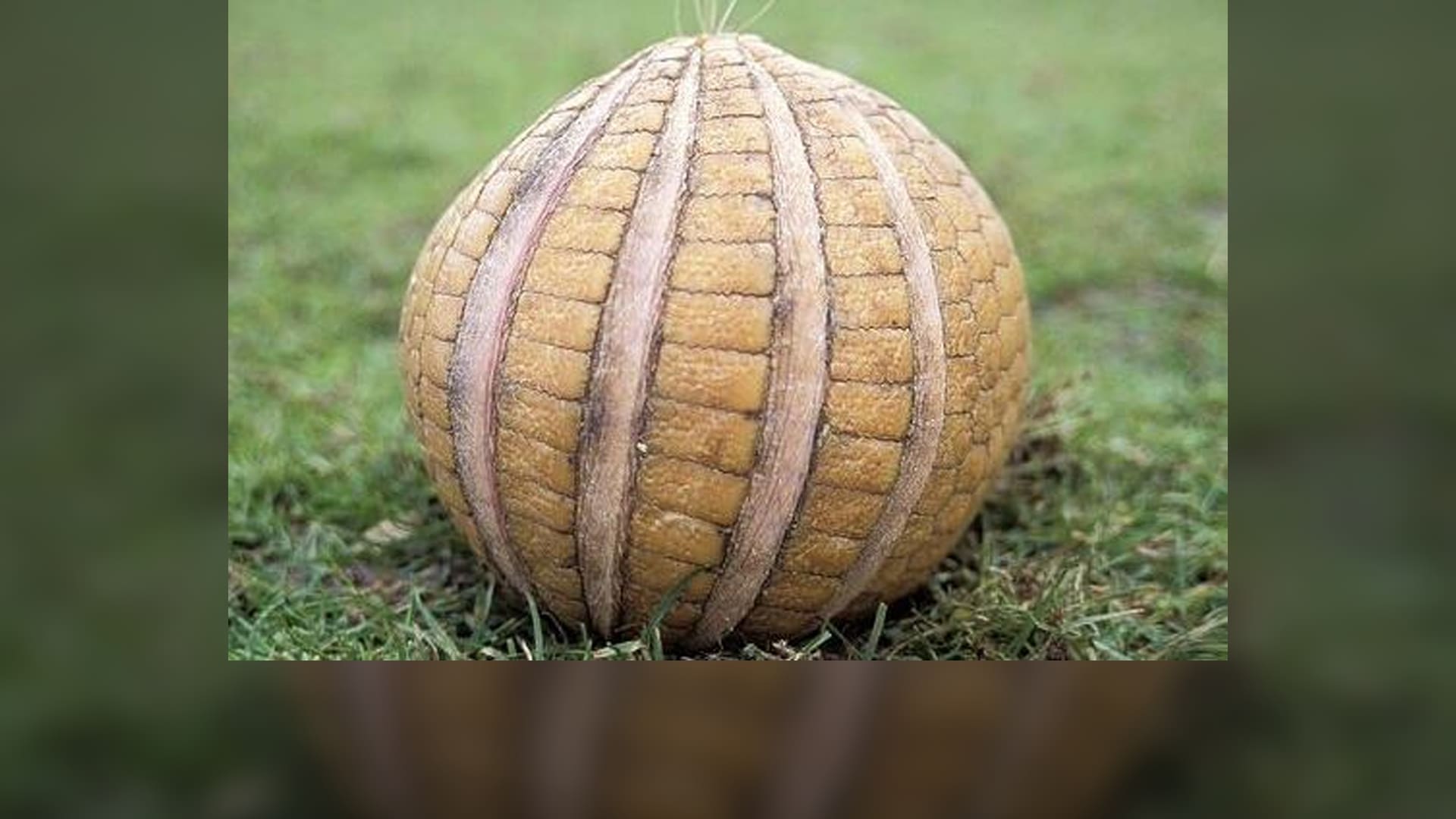
This looks like a ball. But it isn’t a ball. What do you think it is?

Please wait…
This video is having trouble loading. You may have lost your Internet connection.
Step 1: Click to Reload this page
Step 2: Click to
Try our other video player
Step 3: Contact your teacher if trouble persists.
Or,
dismiss this message.
It’s an armadillo! It has tough skin which protects it like armor. But
why do you think it needs to roll into a ball?
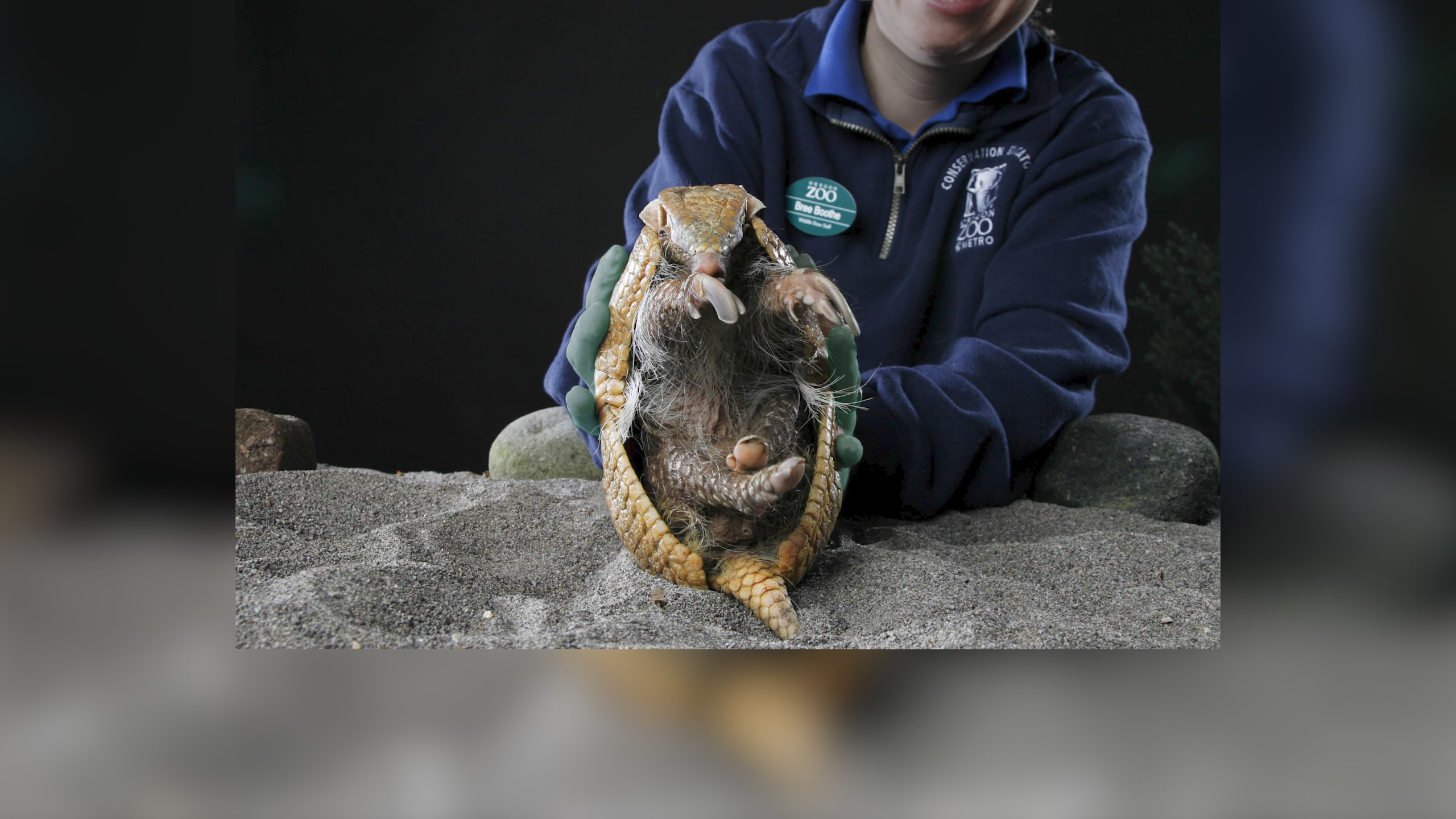
They don’t have “armor” on their bellies! But when they’re rolled
up, their bellies don’t show, so every inch of them is protected!

Please wait…
This video is having trouble loading. You may have lost your Internet connection.
Step 1: Click to Reload this page
Step 2: Click to
Try our other video player
Step 3: Contact your teacher if trouble persists.
Or,
dismiss this message.

Eggs are easy to crack open. If you squeezed one in your hands,
how easy do you think it’d be to break it?

Please wait…
This video is having trouble loading. You may have lost your Internet connection.
Step 1: Click to Reload this page
Step 2: Click to
Try our other video player
Step 3: Contact your teacher if trouble persists.
Or,
dismiss this message.
An egg’s shell is actually strong! Look at how many weights you
can stack on an egg! Why would having a strong shell be helpful?

Please wait…
This video is having trouble loading. You may have lost your Internet connection.
Step 1: Click to Reload this page
Step 2: Click to
Try our other video player
Step 3: Contact your teacher if trouble persists.
Or,
dismiss this message.
When a mother bird sits on her eggs, she won’t crush them--even
if it’s a really heavy bird like an ostrich!

Please wait…
This video is having trouble loading. You may have lost your Internet connection.
Step 1: Click to Reload this page
Step 2: Click to
Try our other video player
Step 3: Contact your teacher if trouble persists.
Or,
dismiss this message.

Please wait…
This video is having trouble loading. You may have lost your Internet connection.
Step 1: Click to Reload this page
Step 2: Click to
Try our other video player
Step 3: Contact your teacher if trouble persists.
Or,
dismiss this message.
You might have seen seashells at a beach before. But what
is a seashell? Why can you find seashells on the beach?
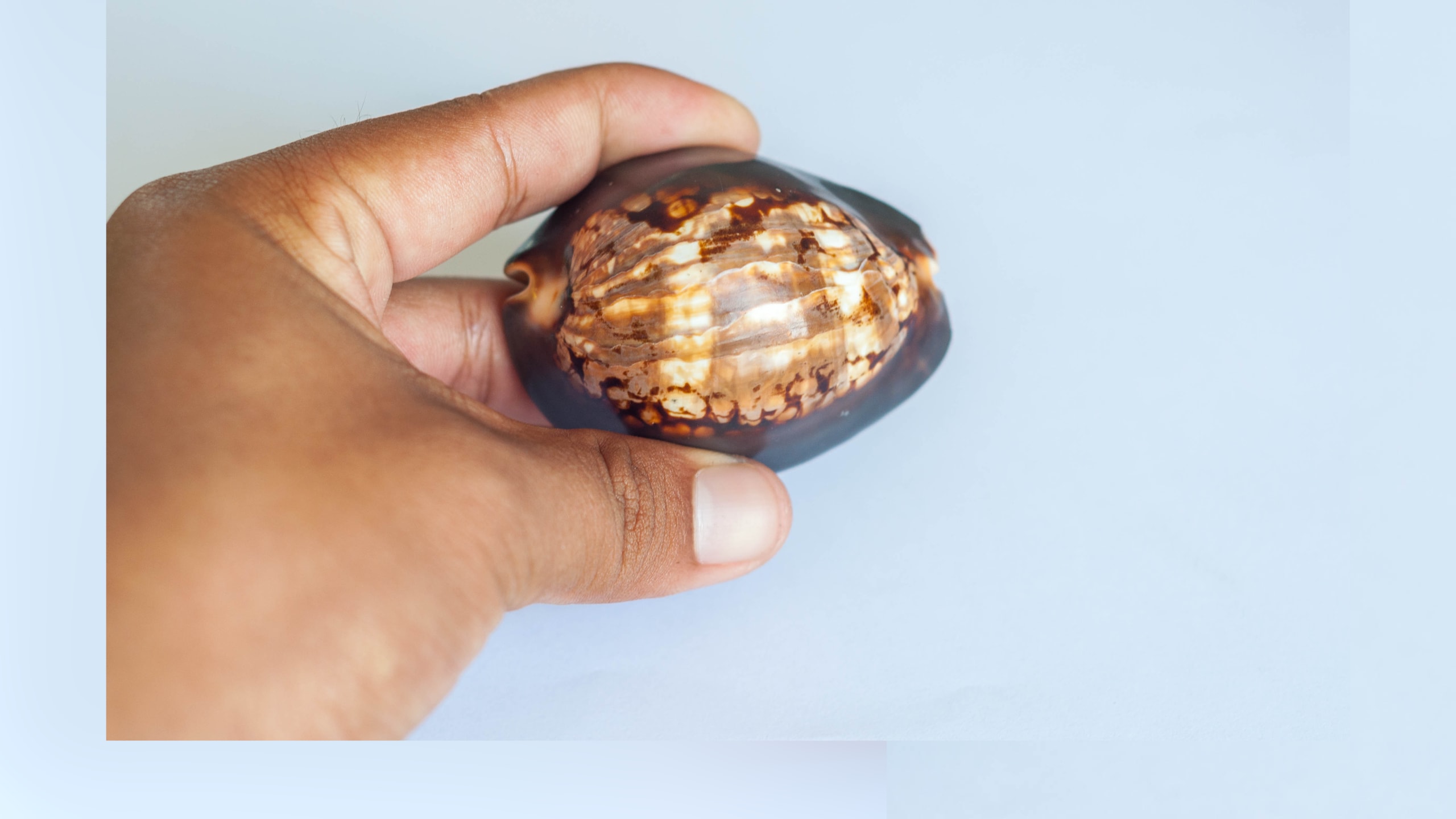
Hint: Think about animals that live on land. What land animals
have shells?

Please wait…
This video is having trouble loading. You may have lost your Internet connection.
Step 1: Click to Reload this page
Step 2: Click to
Try our other video player
Step 3: Contact your teacher if trouble persists.
Or,
dismiss this message.
Check it out! Some snails live underwater! Spiral shells protect
their squishy bodies. Their shells will one day wash up on a beach!

Please wait…
This video is having trouble loading. You may have lost your Internet connection.
Step 1: Click to Reload this page
Step 2: Click to
Try our other video player
Step 3: Contact your teacher if trouble persists.
Or,
dismiss this message.
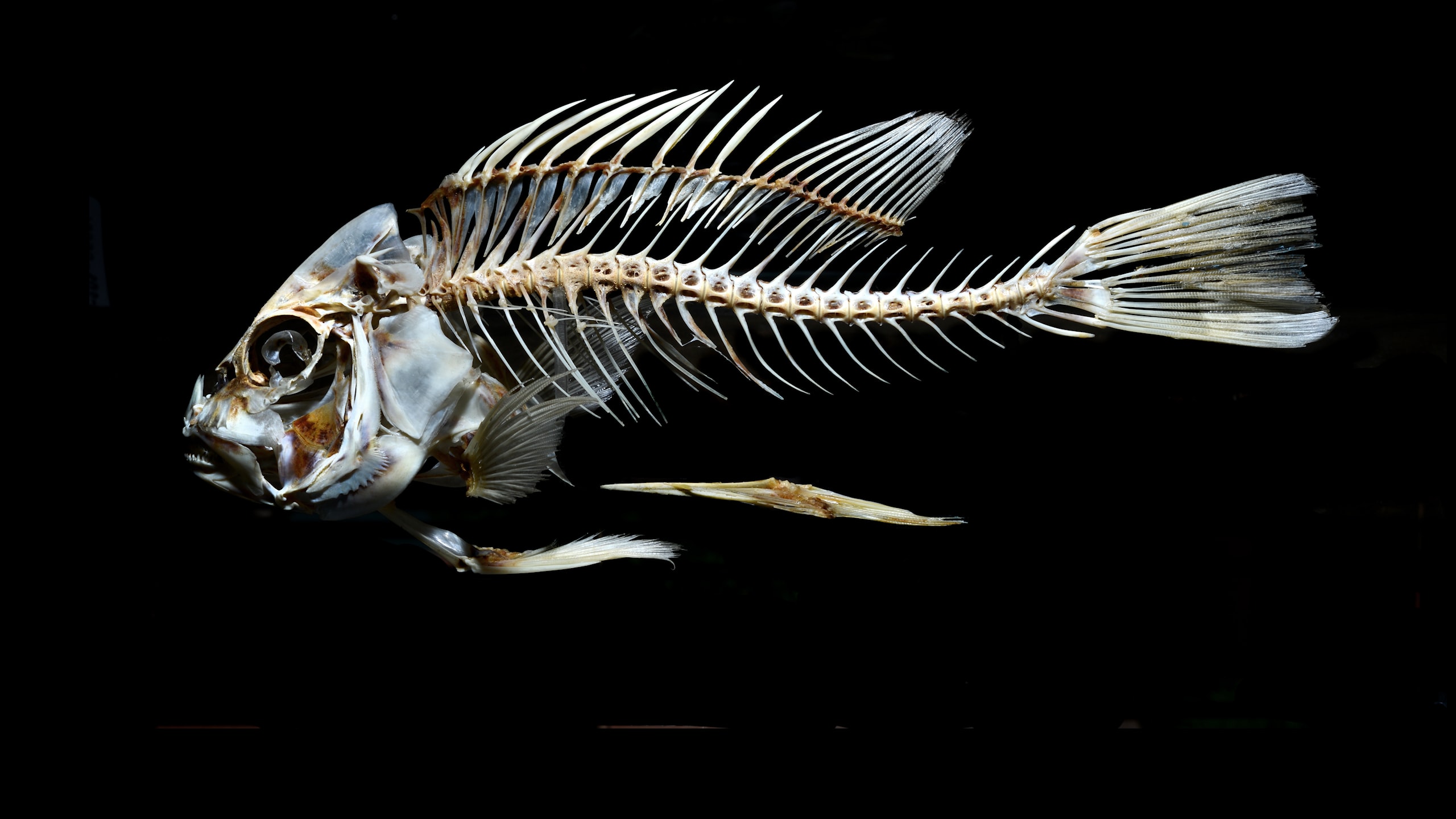
Here’s the skeleton of a common fish. How strong do you think
its skeleton is? Could a hungry animal bite a fish like this?

Please wait…
This video is having trouble loading. You may have lost your Internet connection.
Step 1: Click to Reload this page
Step 2: Click to
Try our other video player
Step 3: Contact your teacher if trouble persists.
Or,
dismiss this message.
Most fish can be bit--their skeletons look like this. But this
colorful pinecone fish has a surprise inside... (Go to next slide!)

Please wait…
This video is having trouble loading. You may have lost your Internet connection.
Step 1: Click to Reload this page
Step 2: Click to
Try our other video player
Step 3: Contact your teacher if trouble persists.
Or,
dismiss this message.
Most fish’s skeletons don’t protect them. But this pinecone fish
has way more bones than most fish--its bones act like armor!
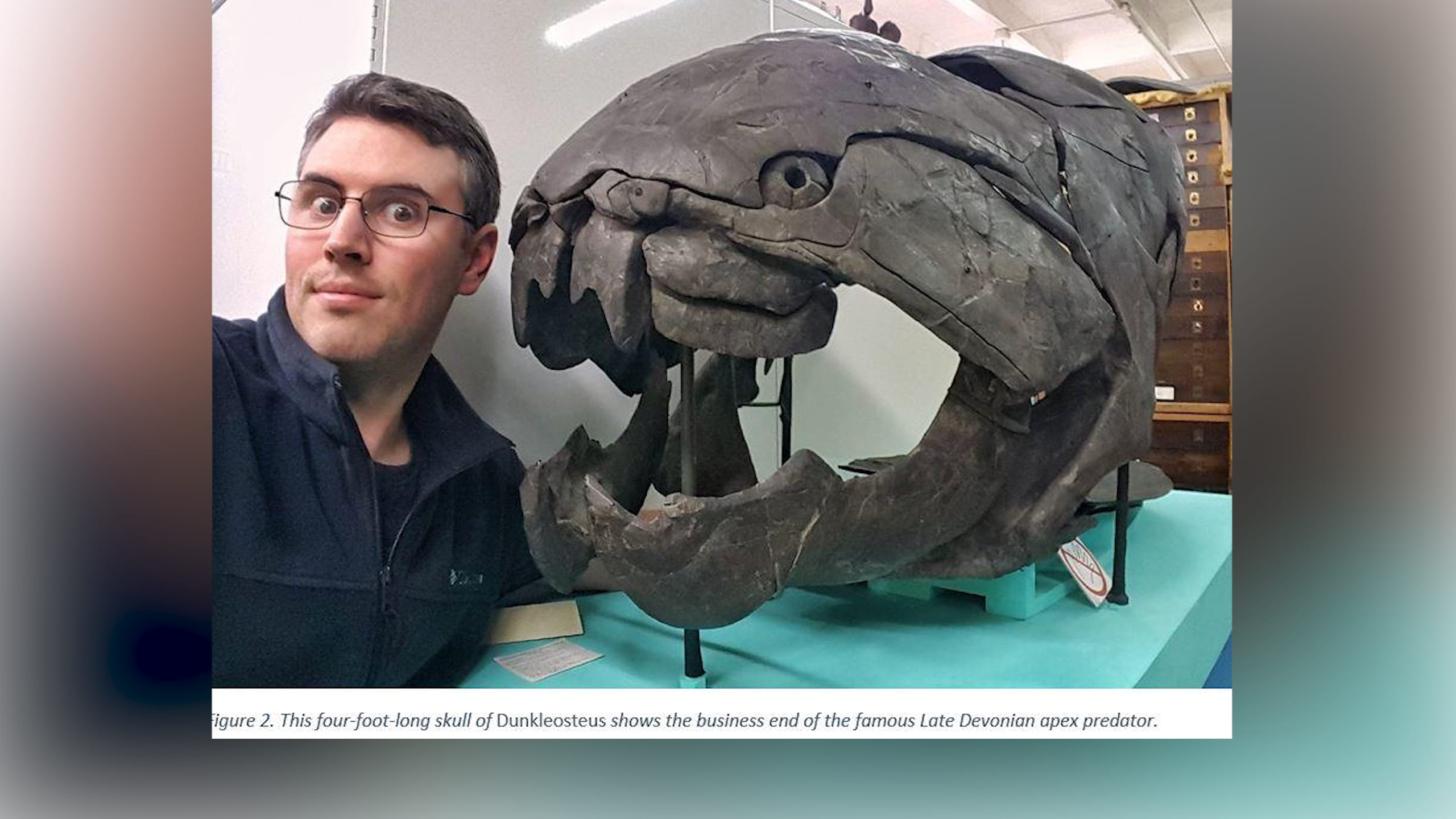
This fossil fish also had “bone armor” on its skull! It lived millions
of years ago and grew almost as long as a school bus.

Please wait…
This video is having trouble loading. You may have lost your Internet connection.
Step 1: Click to Reload this page
Step 2: Click to
Try our other video player
Step 3: Contact your teacher if trouble persists.
Or,
dismiss this message.
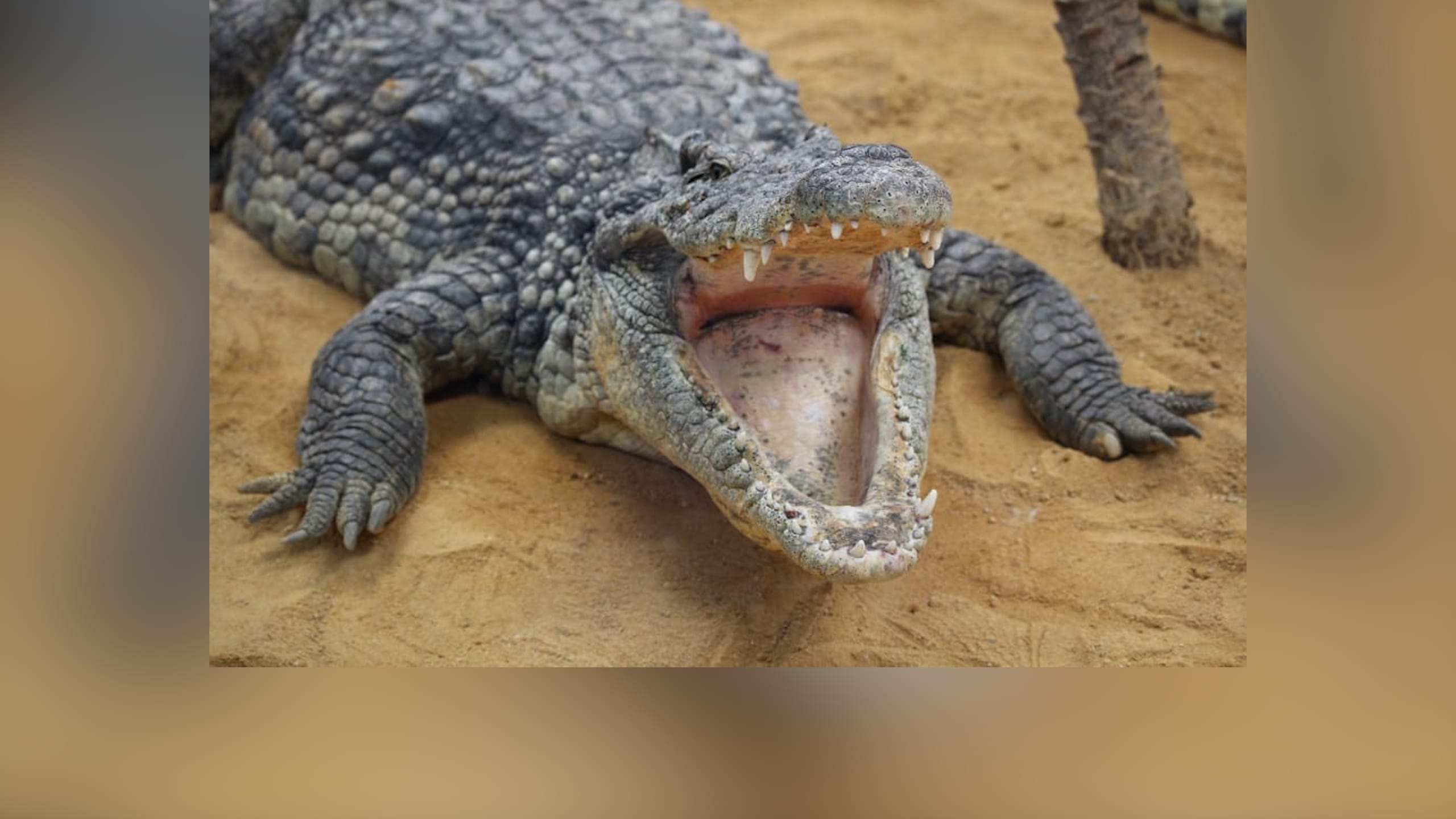
Crocodiles don’t have shells, but their backs are super strong
like armor. Can you guess what makes their backs so strong?
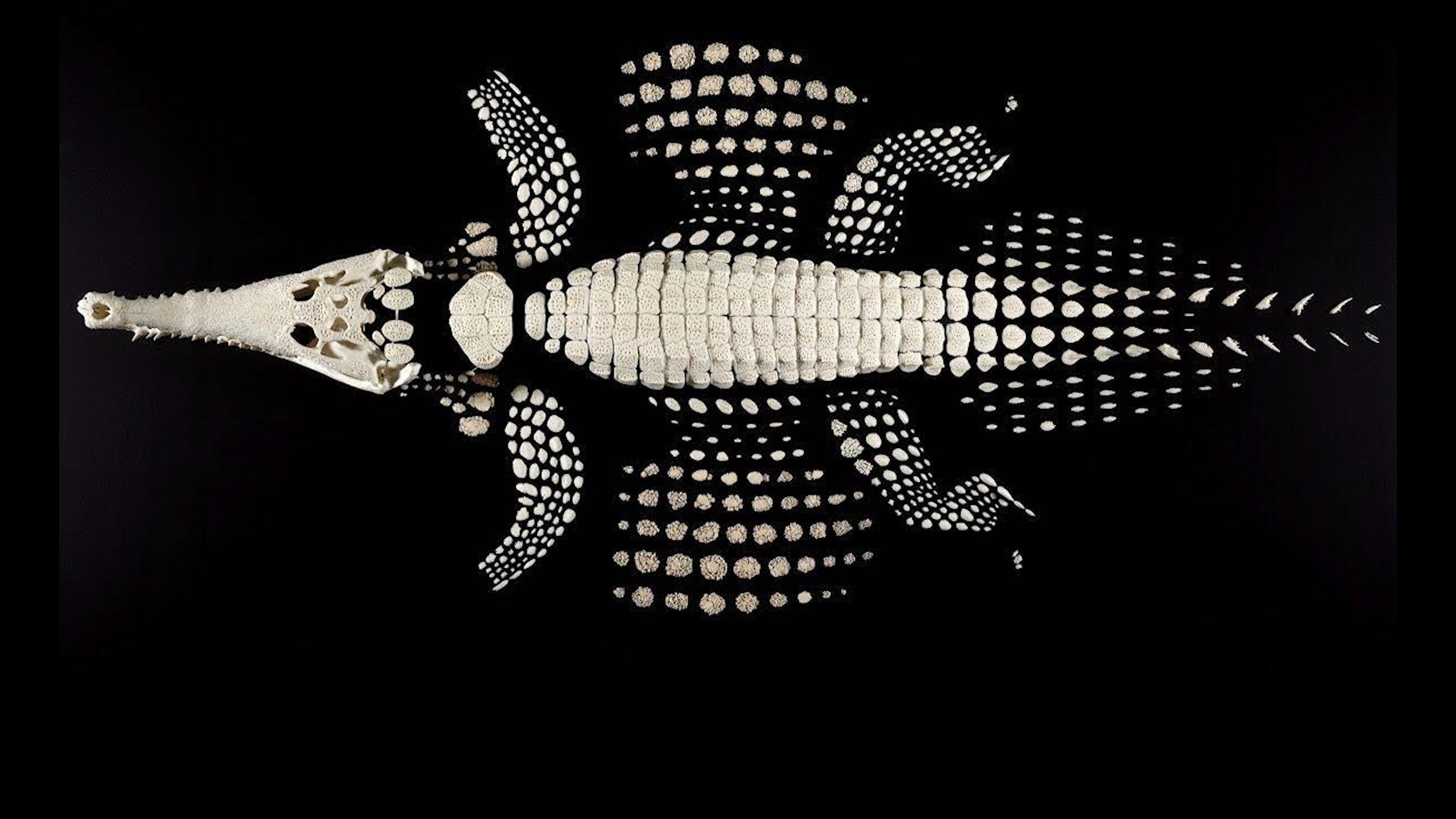
They have dozens of extra bones on their backs (and sides!),
right under their skin.
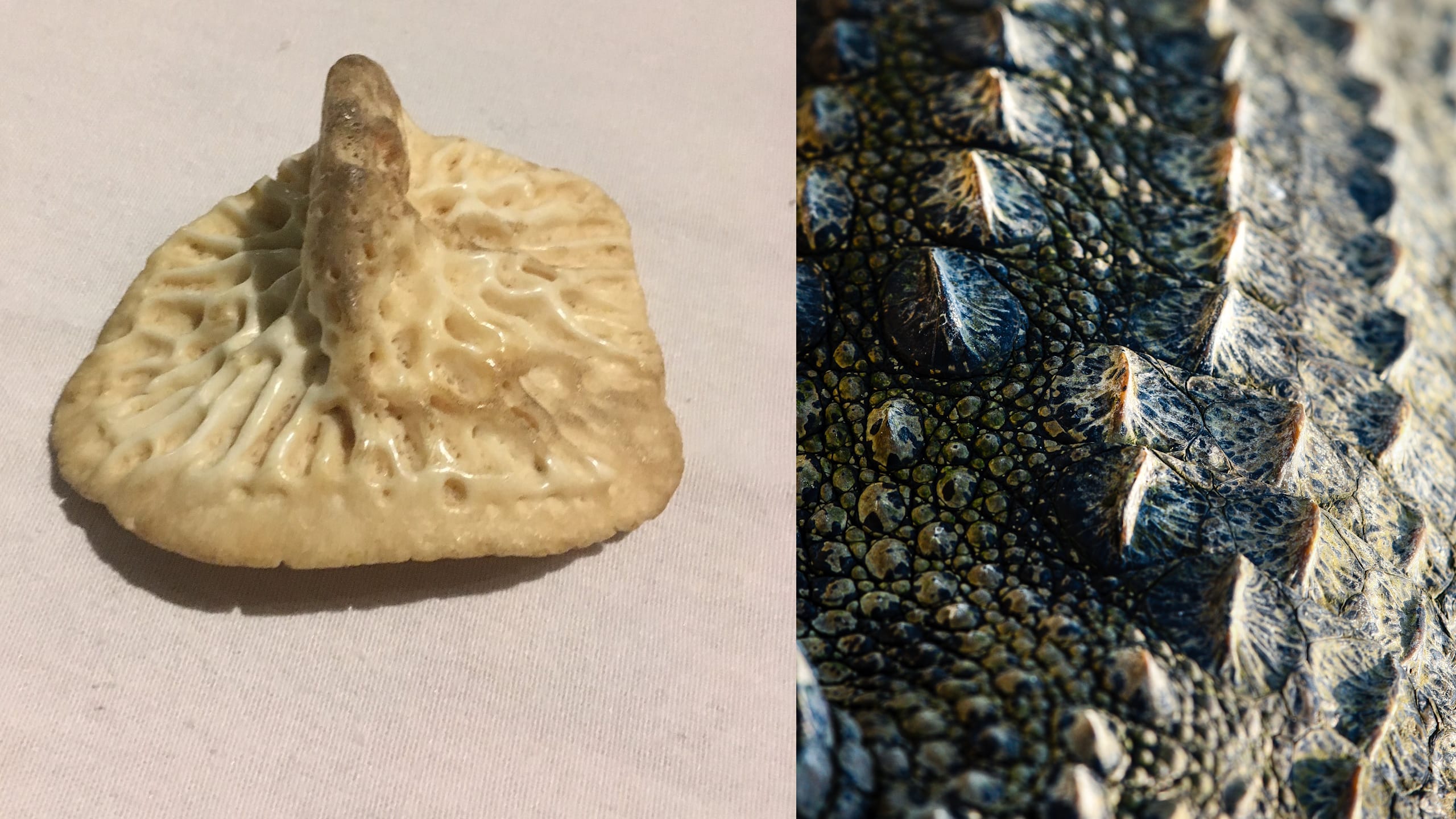
Many of their extra back bones are pointy on top--here’s a close
up of one. You can see the points through their skin!


Please wait…
This video is having trouble loading. You may have lost your Internet connection.
Step 1: Click to Reload this page
Step 2: Click to
Try our other video player
Step 3: Contact your teacher if trouble persists.
Or,
dismiss this message.
Voting for this episode is now closed. Would you like to vote on the most recent poll?
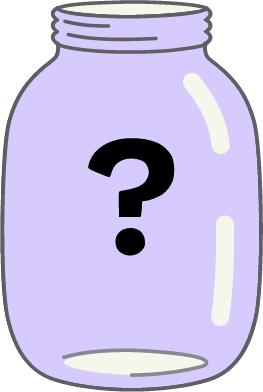
-
Do animals have their own language?
-Paisley, 4th Grade
-
What's the difference between butterflies and moths?
-Alicia, 5th Grade
-
What makes some animals cold blooded?
-James, 2nd Grade






